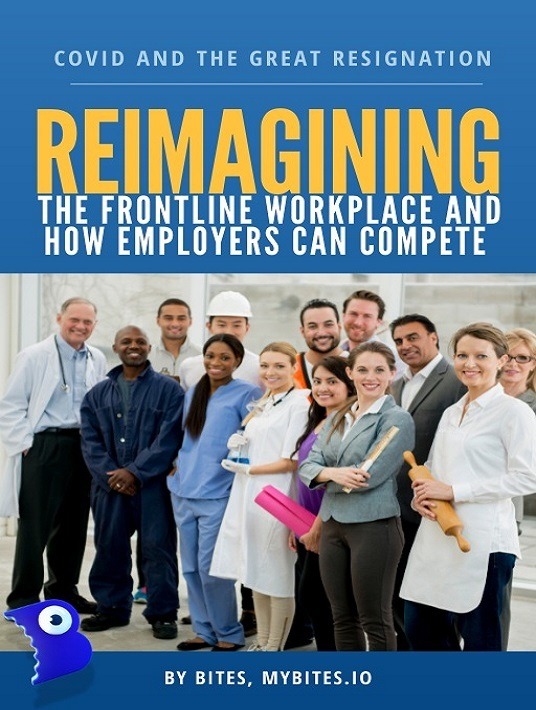Training Remote Employees: Social Resilience As A Shield From Business Chaos
Organizations increase employees’ mental, physical, and social resilience through a variety of additional activities that include, professional training, professional mentoring, and even creating “quiet spaces” for relaxation during the workday. Some initiatives that can have a positive effect on the level of resilience of employees contribute to employees’ sense of belonging and increased productivity.

eBook Release
COVID And The Great Resignation: Reimagining The Frontline Workplace And How Employers Can Compete
Hybrid work, new disciplines, and the ever-changing workplace are what this eBook is about.
Professional Training And Team Building Activities
One of the most significant and effective activities that contribute to mental resilience and protection against stressful situations is training to impart and expand the professional skills that employees need to perform their job.
Many organizations, after realizing the significance of training as a form of communication, invested in training platforms for knowledge transfer to strengthen existing skills resulting in a better feeling of employees experiencing self-improvement.
The ability to control a variety of professional situations is the basis of personal mental resilience that helps employees to cope. Coupled with activities and breaks for energy renewal that combine physical activity or other activities during the workday.
Such breaks allow employees to shift the energy needed to cope with work demands in times of stress and crisis, thus reducing the level of burnout that employees experience and improving skills that help them perform better.
Celebrating business successes, holidays, and personal events considering the social distancing or the inability to have everyone in the same venue shows the essence of a virtual platform to help mark positive events that happen in the organization, including personal events (birthdays, births, etc.), holidays, celebrations and business successes.
The shift of businesses to Work in capsules created a need to invest in creating social events although employees cannot meet physically. The employee’s family can be preyed upon. This has a positive effect on the level of connection of the employees to the organization.
Internal Communication Is Key To Managing An Efficient Workforce
One of the significant challenges considering the pandemic is the employee’s sense of detachment from the organizational environment and in the case of frontline employees, it was a sense of even bigger detachment from their HQ. Employees usually focused on the professional routines of the workplace and often felt the loss of togetherness that damaged a sense of personal resilience. That is why organizations are working much more intensively than in the past in the areas of internal communication. In a wide variety of organizations, weekly video calls, whether zoom or Bites is held with the CEO or other C- level execs to receive regular updates on what is happening in the business and to hear about successes, challenges, and organizational changes and developments in the market. Communicate to employees the critical issues and give them a sense that they are aligned to the organization’s broad activities, beyond doing their immediate tasks.
Businesses also hosted a “virtual roundtable” routine. Managers meet weekly with a small group of employees to understand how they feel and what can be done to strengthen the sense of connectedness. Establishing and enforcing routines in normal mode, each department manager acts according to his experience in terms of the management routines applied in the unit. the pandemic challenges and working from home, organizations have realized that much more intense interaction is needed between managers and staff daily.
They also developed management routines on this topic, such as an emphasis on a short team meeting every morning. Such a meeting occurs naturally in office work, but in the period of remote work conducts a routine of short team meetings each morning so that everyone feels belonging and gives specific emphasis to daily activities.
Some organizations encourage managers and employees to conduct daily briefings over the phone as a source of empathy and to avoid loneliness and create a feeling That someone is paying attention to their work. Additional management routines include a weekly staff meeting with agenda and decision monitoring, the monthly follow-up meeting on other performance goals, and the like. Such routines are also performed in the normal state, but their importance increases when the feeling of loneliness can hurt the organizational connection and productivity, and therefore also in the sense of personal resilience of the employee.
Conclusion
Download the eBook COVID And The Great Resignation: Reimagining The Frontline Workplace And How Employers Can Compete for insider tips to support your frontline employees and stay competitive in your industry.

Bites Microlearning
Bites helps SMB & enterprise businesses create, share and manage professional content with their frontline employees. Create professional content, share through social channels and manage usage to help employees meet their full potential.
Originally published at mybites.io.

